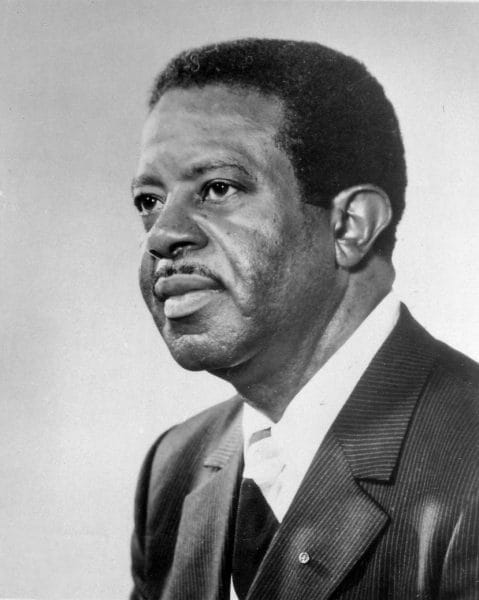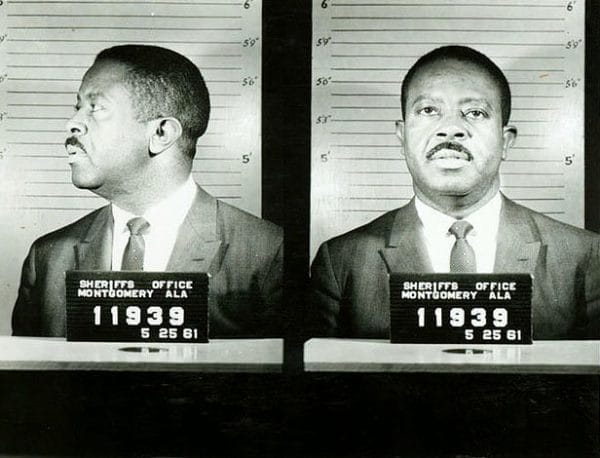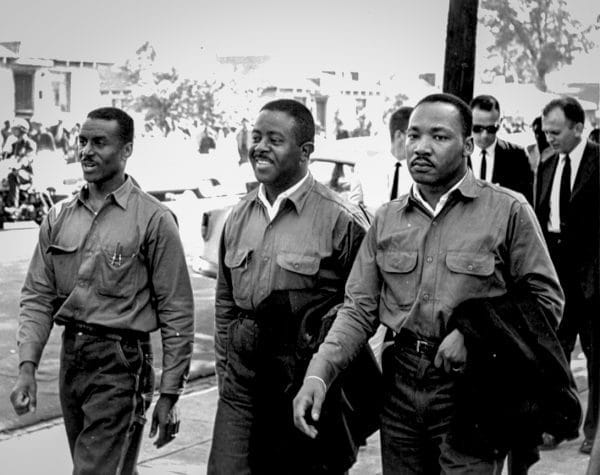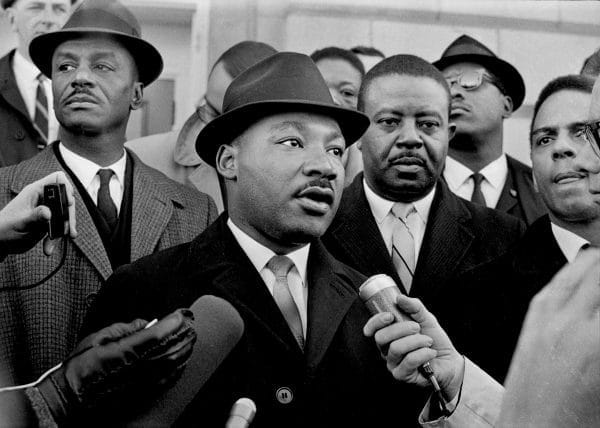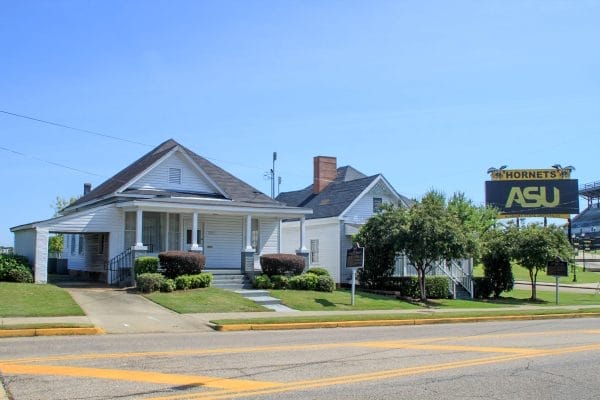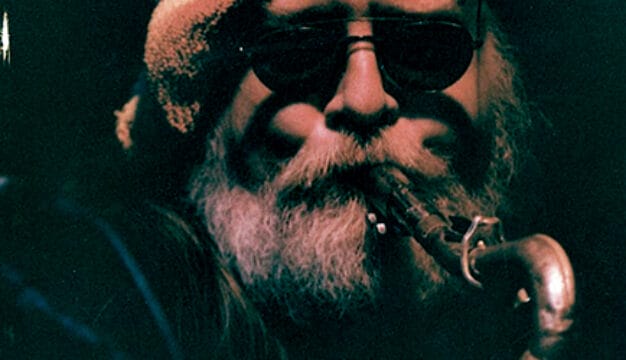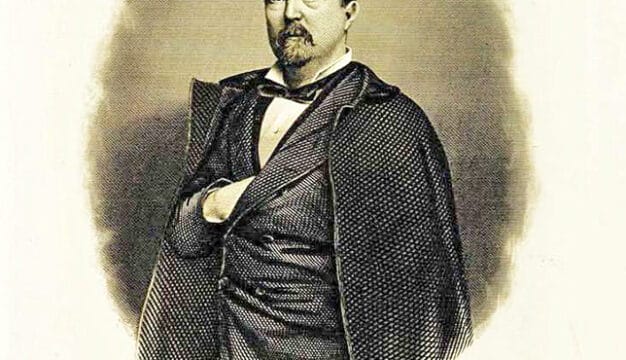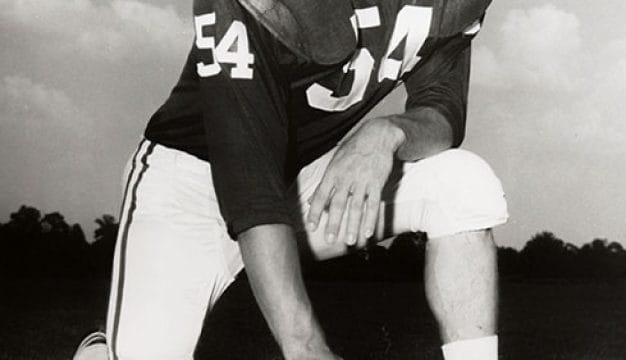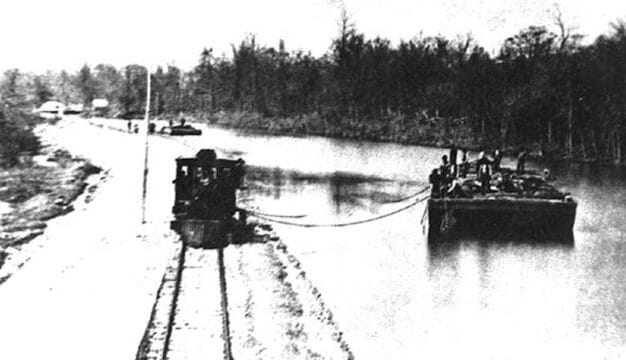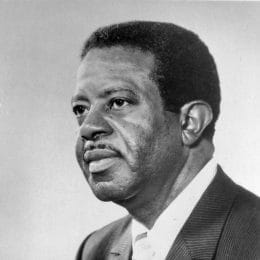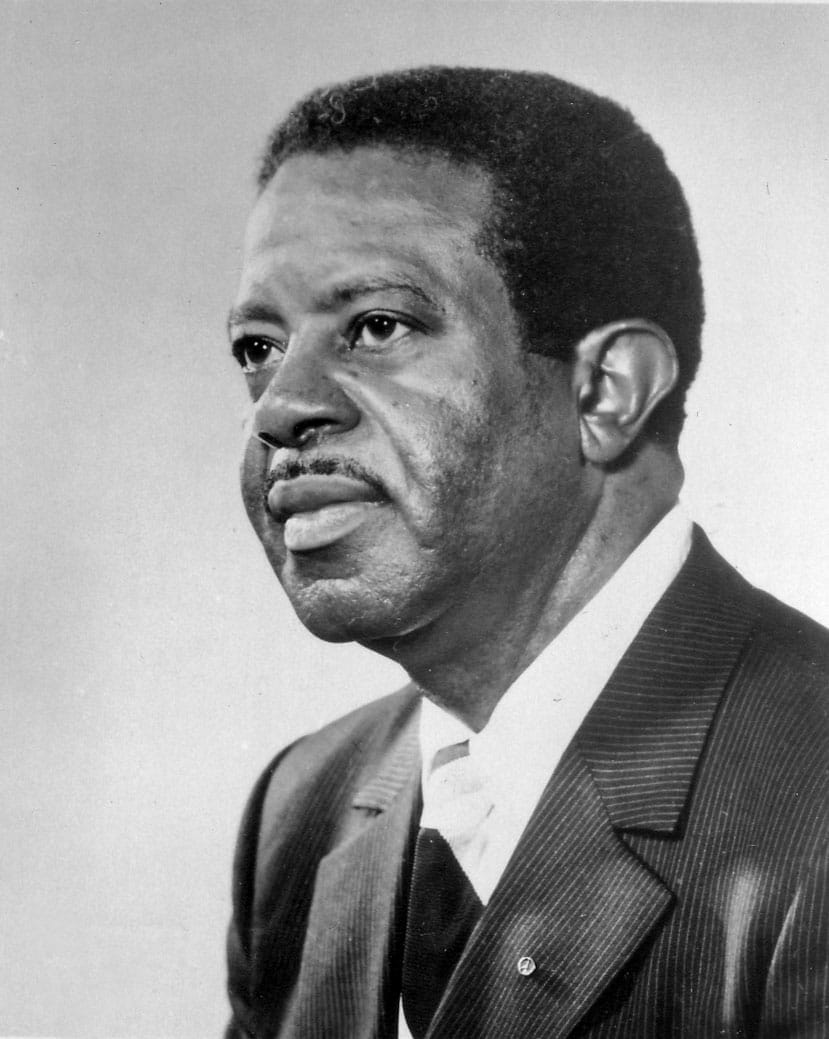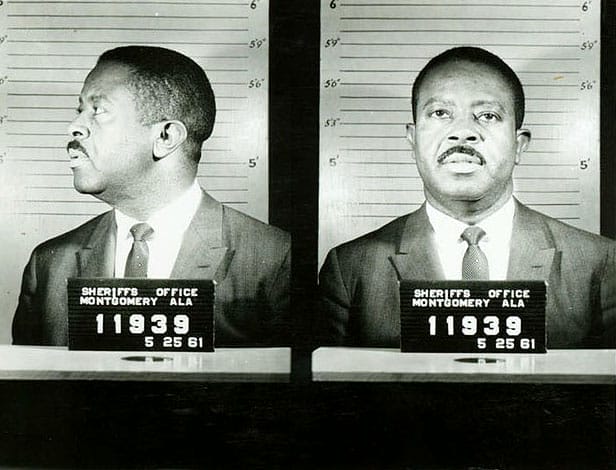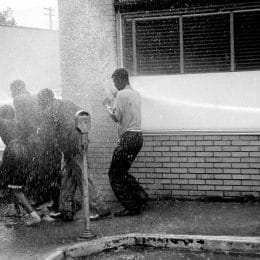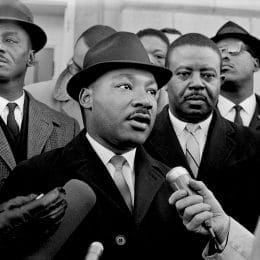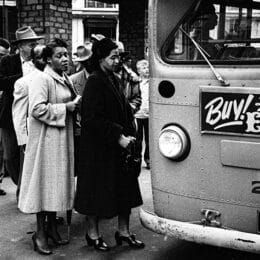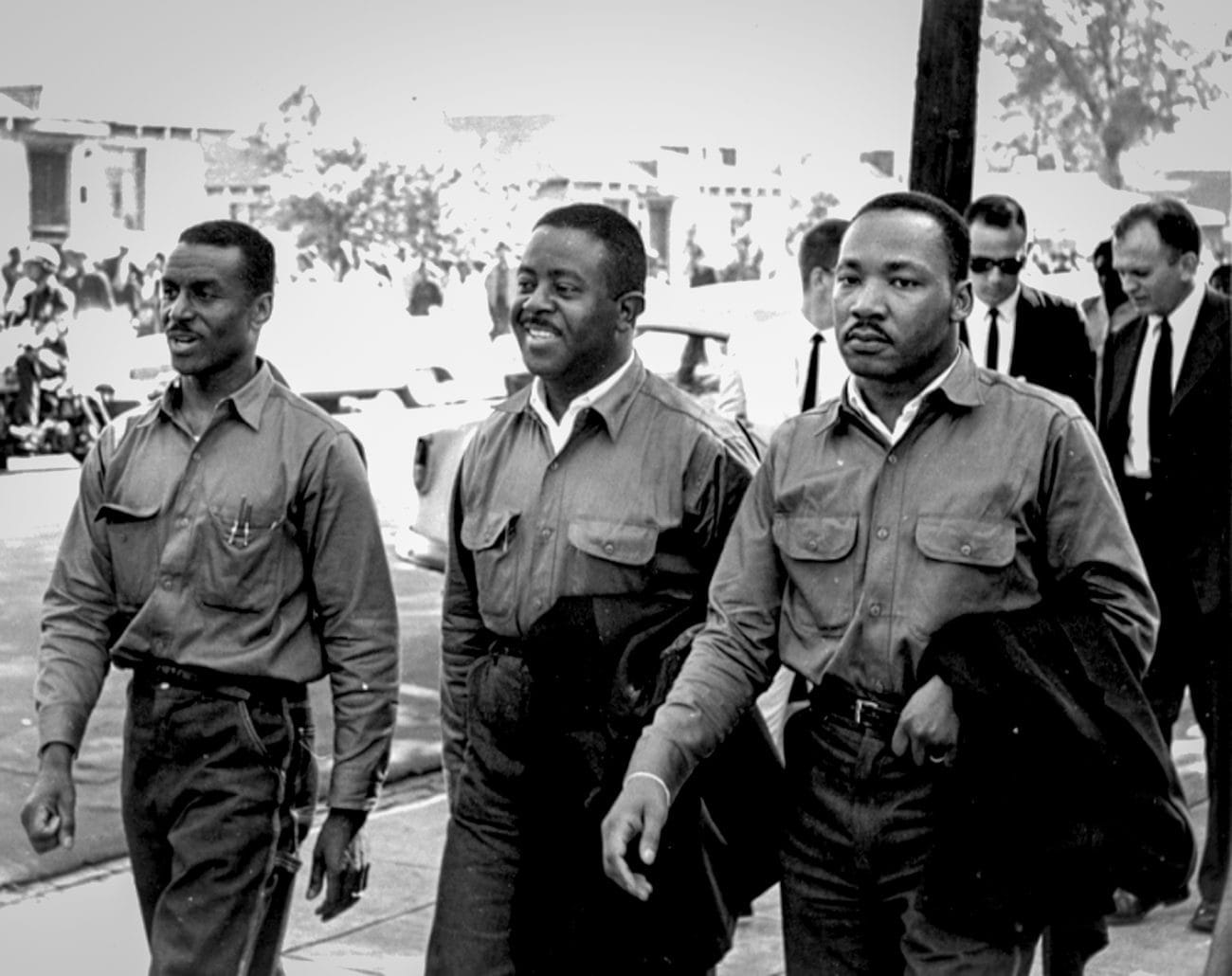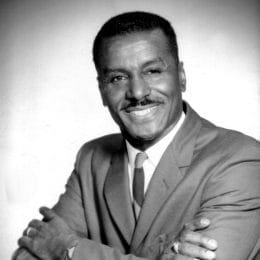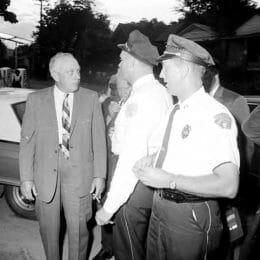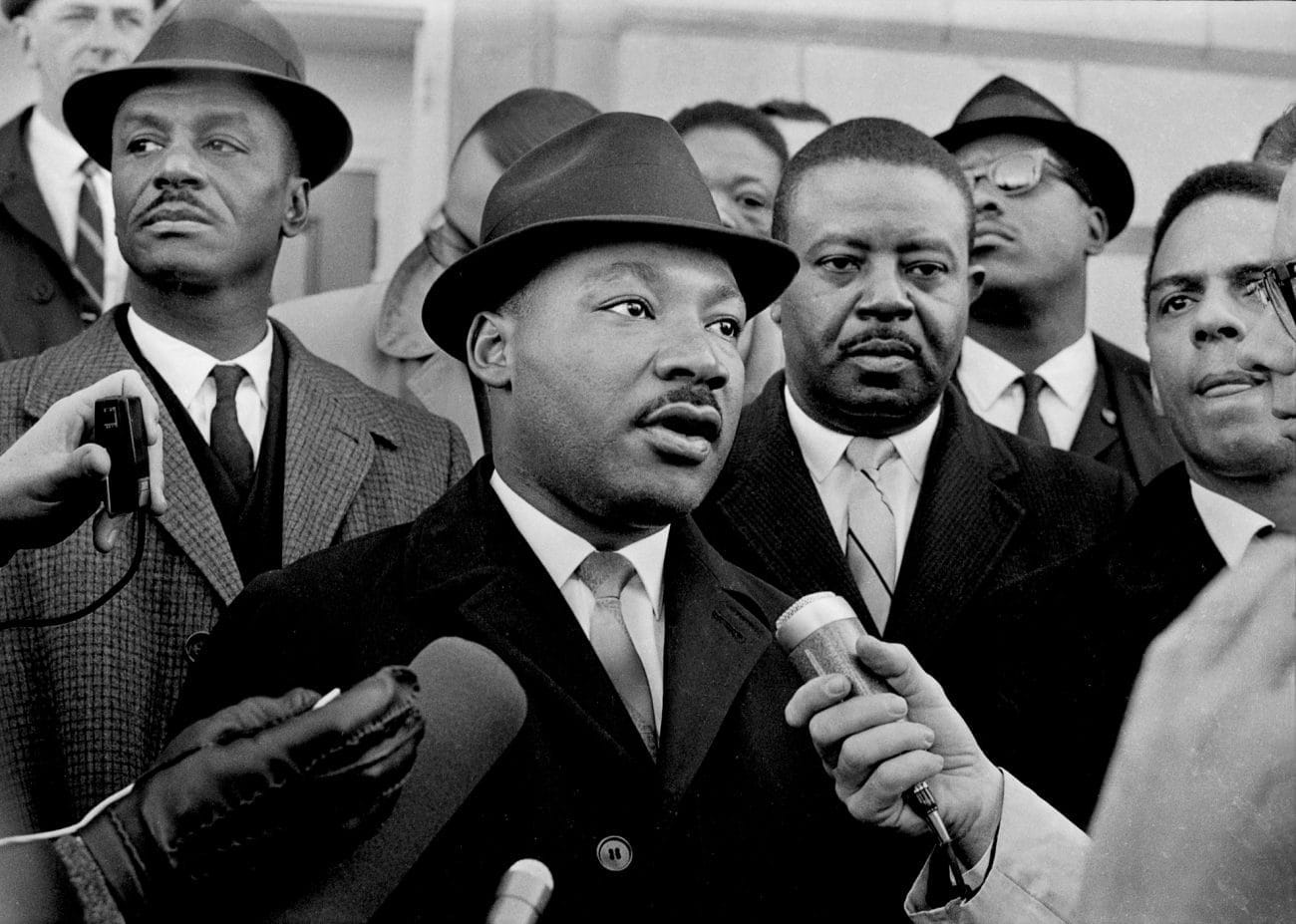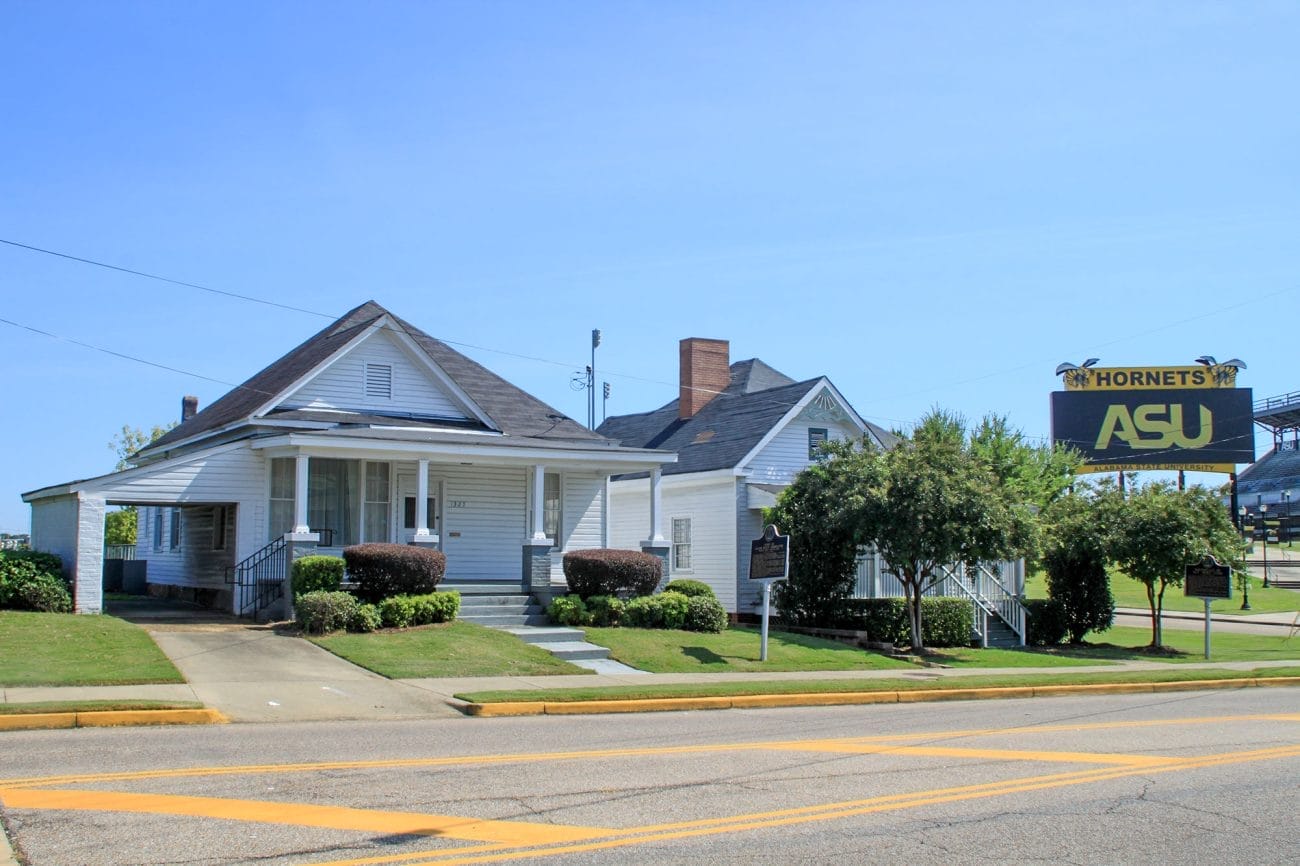Ralph David Abernathy
Ralph David Abernathy (1926-1990), son of an Alabama farmer, emerged in the 1950s and 1960s as a founding and steadfast leader of the civil rights movement. At the age of 29, Abernathy was one of the organizers of the Montgomery Bus Boycott, which began in December 1955. He was a close friend and confidante of Martin Luther King Jr., a founding member of the Southern Christian Leadership Conference (SCLC), and an integral part of the historic events that took place during the height of the civil rights movement.
Abernathy was born March 11, 1926, in the Hopewell Community of Marengo County, the 10th of 12 children. His family was more successful than most and owned a 500-acre farm (“a plantation” as Abernathy later called it) that provided a certain measure of independence. After serving in the army during World War II, Abernathy entered Alabama State College (now Alabama State University, ASU), graduating in 1950 with a degree in mathematics. Abernathy learned the merits of activism while at Alabama State, leading student strikes to improve food and housing conditions at the school. Abernathy then earned a master’s degree from Atlanta University (now Clark-Atlanta University) in 1951 and in the same year became pastor of the First Baptist Church in Montgomery, a large and prestigious African American congregation, and accepted a position as dean of students at Alabama State. In August 1952, Abernathy married Juanita Odessa Jones, who would become an important part of Abernathy’s civil rights activities and with whom he had four children.
In 1954, Martin Luther King Jr., a native of Atlanta, Georgia, became a minister at Dexter Avenue Baptist Church, not far from Abernathy’s First Baptist. After King moved to Montgomery, Abernathy, who was three years older, served as his mentor in the city’s black ministerial community. In December 1955, Abernathy, King, and several other local activists created the Montgomery Improvement Association (MIA) after fellow activist Rosa Parks was arrested for refusing to relinquish her seat to a white man on a city bus. Many civil rights leaders in Montgomery had been looking for just such a spark to trigger protests against the harsh segregation rules on public transportation. Abernathy and other MIA leaders orchestrated a bus boycott that lasted more than a year and brought national attention to the MIA members and to civil rights issues in the South. Abernathy often shared the podium with King and exhorted the people not to lose faith. In January 1957, amid a spate of white violence following the successful bus boycott, Abernathy’s home and church were heavily damaged by bomb blasts.
In August 1957, Abernathy, King, and several others founded the Southern Christian Leadership Conference (SCLC), which would become the most visible civil rights organization in the South. King was installed as president and Abernathy as secretary-treasurer. Abernathy would later become vice president of the organization and then ascend to the presidency after King’s assassination in 1968.
In 1961, Abernathy and his congregation welcomed the Freedom Riders, an integrated civil rights group traveling the South in a bus to protest segregation. Abernathy offered his church, which had been restored from the bombing four years earlier, as the site for a rally to be held on the third Sunday in May. But as Abernathy and other civil rights leaders spoke in defense of the Freedom Riders, First Baptist Church once again came under attack. An angry mob gathered outside, throwing stones at the windows and threatening the people inside. Along with King, Abernathy urged the people in the church to stay calm. In such situations, according to the Rev. Thomas Gilmore, a civil rights leader in the Alabama Black Belt, Abernathy faced them with firm resolve. It was an opinion shared by King, who found Abernathy a source of strength during times of trouble. Indeed it was in his capacity as King’s close friend and second in command that Abernathy made his greatest contribution to the civil rights movement.
Later that year, King moved back to Atlanta, a city then emerging as the hub of civil rights activism in the South, and he was eager for Abernathy to follow. After being offered the pastorate of West Hunter Street Baptist Church in Atlanta, Abernathy decided to move his family there as well. Throughout the turbulent events of the era, he served as a friend and alter-ego to King, as they faced the dangers that went with the protests. In Montgomery, he helped organize and lead the first wave of sit-in demonstrations. In St. Augustine, in a move that raised the profile of the protests, Abernathy was jailed along with several other activists for swimming in a segregated pool. And in Chicago, he preached at mass meetings and helped to lead marches for equal housing that were often met by rock-throwing mobs.
In Birmingham, on Good Friday, April 12, 1963, King decided to provoke the city’s commissioner of public safety, Eugene “Bull” Connor, into arresting him in the hope of generating support for flagging demonstrations in that city. He asked Abernathy to join him, and after a brief hesitation, Abernathy agreed. Accompanied by Birmingham civil rights leader Fred Shuttlesworth, the men marched off together to lead the demonstration that would result in those arrests. The incident would prove to be historic: It produced King’s “Letter from Birmingham Jail,” one of the most famous documents of the civil rights era.
On April 4, 1968, Abernathy and several other activists were in Memphis with King to protest unfair treatment of the city’s sanitation workers. Abernathy was standing a mere few feet away when an assassin shot King on a motel balcony. Abernathy attempted to comfort King and remained at his friend’s side as he died. The years following the assassination were difficult for the movement and even harder for Abernathy himself. He succeeded King as president of the SCLC, and within weeks of King’s death he led the Poor People’s Campaign of 1968, a national effort that included a march on Washington in pursuit of greater economic opportunity and social justice. But as time went by, the media and many people in the country found that Abernathy lacked King’s charisma and credibility.
In 1977, Abernathy stepped down as president of the SCLC and ran unsuccessfully for the U.S. House of Representatives. In the latter years of his life, Abernathy devoted himself more completely to his work as a minister, both at his own West Hunter Street Baptist Church in Atlanta and as a sought-after speaker in other African American churches. In 1989, he published a memoir, And the Walls Came Tumbling Down. Abernathy died in Atlanta on April 17, 1990, and was buried in the city, which named a downtown freeway in his honor. Abernathy’s Alabama home is located on the campus of ASU next to the relocated childhood home of singer Nat “King” Cole.
Further Reading
- Abernathy, Ralph David. And The Walls Came Tumbling Down: An Autobiography. New York: Harper & Row, 1989.
- Gaillard, Frye. The Heart of Dixie: Southern Rebels, Renegades and Heroes. Asheboro, N.C.: Down Home Press, 1996.
- Garrow, David J. Bearing The Cross: Martin Luther King Jr. and the Southern Christian Leadership Conference, 1955–1968. New York: William Morrow, 1986.
